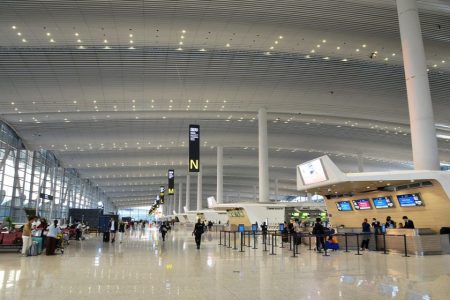Hong Kong’s immigration department has arrested 18 people over the creation and use of forged documents for the city’s Top Talent Pass Scheme (TTPS), which grants residency rights to applicants.
In a statement yesterday, the Hong Kong government said it had “successfully neutralised a cross-boundary syndicate” involved in the fake document scam, arresting five Hong Kong residents, aged between 42 and 46, and 13 mainland Chinese nationals, aged between 27 and 47, since April.
Under operation “ShadowNet,” the authorities managed to apprehend the syndicate’s alleged Hong Kong leader and associates, who are accused of having a hand in 22 TTPS applications over the course of 18 months.
Hong Kong authorities said that the mainlanders said to have sought the services of the criminal organisation were required to pay HK$2.5 million (US$318,487) for the falsified documents, which included phony diplomas, overseas visas, work documents and immigration stamps.
Additional forged documents, including salary and employment papers, were allegedly produced after the talent scheme applicants entered Hong Kong. Overall, the organisation is accused of amassing HK$55 million (US$7 million) from the mainland applicants.
The Hong Kong residents allegedly forming the criminal gang have been charged with the production of false documentation and the facilitation of their use. As well, they are under investigation for money laundering, with the authorities claiming that “more persons involved in the case may be arrested.”
Meanwhile, the mainland TTPS applicants have been arrested on suspicion of acquiring an entry permit by issuing a false statement.
[See more: What is the Macau Scam?]
In its statement, the Immigration Department stressed that entry permits and residency rights gained through dishonest means would be deemed legally void and null, and would be punished as a criminal offence.
Introduced in December 2022, the TTPS is intended to attract international talent to work in the city, offering successful applicants the right to stay in the city for up to 36 months.
The eligibility requirements, however, are stringent, as applicants need to have either a yearly income of HK$2.5 million, usually a degree from the world’s best universities, and the required amount of work experience.
Macao was also hit with its own document scandal late last year when 24 mainland students studying at the Macau University of Science and Technology (MUST) were expelled for lodging fake Hong Kong high school exam credentials as part of their applications.
Scams of all kinds, including phishing, smishing pig butchering and sextortion, have become increasingly prevalent in Asia and around the world in recent years, as criminals seek to exploit people’s vulnerabilities and new technologies such as AI.






